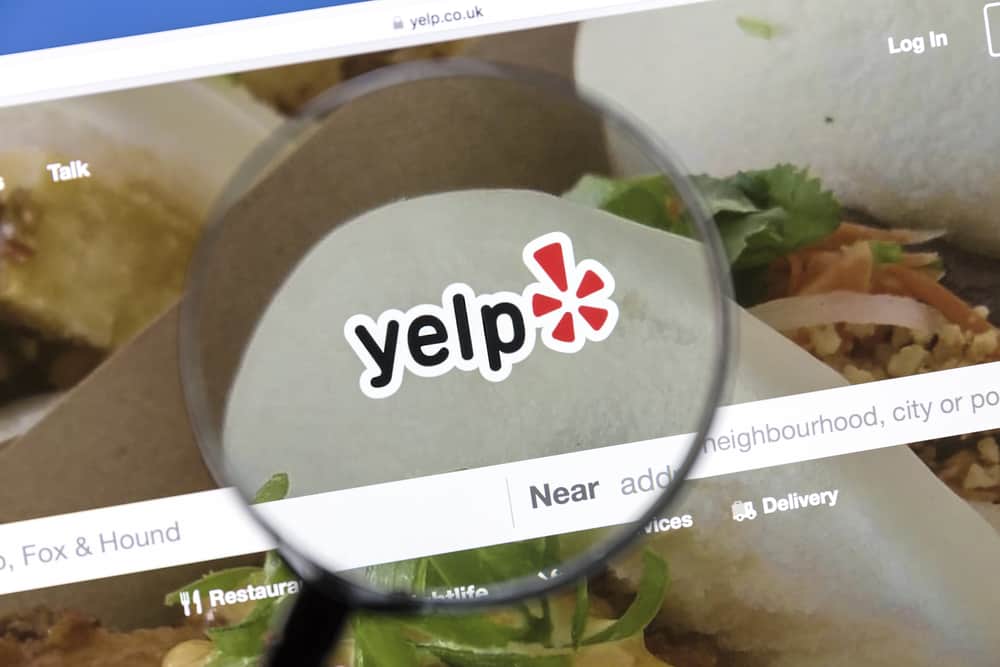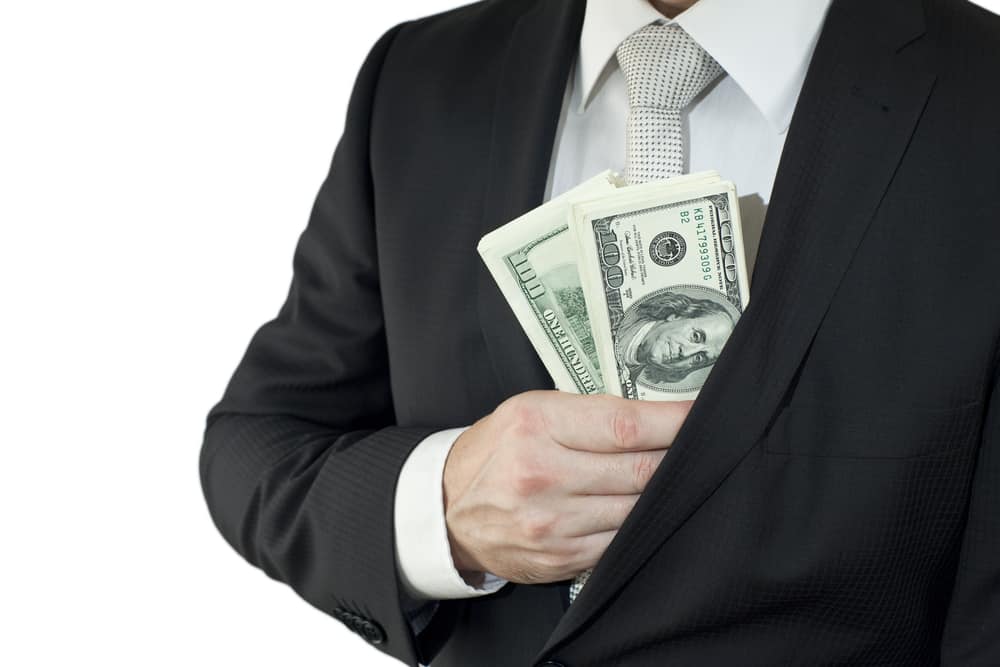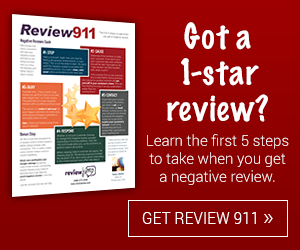
Do you ever feel like your business is being held hostage by Yelp?
If you have, I understand that feeling completely. In the past, I’ve often spoken about how I think Yelp bullies businesses. Or, at the very least, Yelp is not looking out for businesses and business owners, alike.
Fake reviews happen to good businesses. Negative reviews that don’t display how your business really treats its customers are displayed prominently, while positive reviews are filtered. And Yelp’s always asking you to pay for advertising– and sometimes it seems like paying for advertising will put Yelp in your corner.
Even in my inbound marketing work, my clients have expressed that same sentiment to me. But how far does it go? Is Yelp actually extorting your business? Do your positive reviews get filtered just because you’re not paying them to advertise?
And, what’s more, do you have to pay Yelp to remove bad reviews?
In this article, I’ll explore both Yelp’s official positions and what the experts say on the matter.
But keep one thing in mind– Yelp is completely driven by its own algorithm.
Just like Google and its search algorithm, Yelp will never fully reveal how their algorithm works to people like us. We can put in the research, but in the end, we have to go by what we can prove, what Yelp says, and what we think goes on behind the scenes.
Let’s start with Yelp’s official position.
Yelp’s Official Position

According to their official position, you definitely don’t have to pay Yelp to remove bad reviews. They say it’s all up to the algorithm. I’m sure you’ve heard that one before.
Here are some interesting tidbits from their own page about how filtering reviews works.
They list five important things:
“1. Reviews that reflect perfectly legitimate experiences are sometimes filtered out by the review filter’s algorithmic processes. We agree this can be frustrating, but it’s the high cost we accept to avoid being a laissez-faire review site that people stop using. Everyone loses when that happens.
2. Reviews are never “deleted” by the review filter; they are always shown on users’ profile pages… This automated process sometimes creates the perception that reviews are being deleted and re-added over time; what’s actually happening is users are becoming more-or-less established over time.
3. … It’s tough for an algorithm to tell the difference between a business owner aggressively putting a laptop in front of a client and saying, “Give me 5 stars!” and that same business owner flipping the laptop around and manufacturing a fake 5-star review about themselves.
4. … the more descriptive we are about what makes an established user, the less effective our filter is at fighting shills and malicious content.
5. Both positive and negative reviews can be affected. This is to protect Car Mechanic A from Car Mechanic B’s writing of malicious 1-star reviews about his competitor… “
In theory, Yelp filters reviews to protect businesses and consumers.
In all reality, Yelp filters reviews as it pleases, and it does so to both, encourage consumers to leave more reviews (as their early reviews are often filtered), and to prevent businesses from “gaming the system.”
We probably disagree with Yelp on what gaming the system is and who’s trying to game it– but it is what it is.
So, let’s move on to an interview Leigh Held conducted with a Yelp executive on Entrepreneur.com.
The executive said Yelp uses three qualifiers when they filter a business’ reviews:
- Quality
- Reliability
- User Activity
Dr. Peter Zandan, global vice chair of research at Hill + Knowlton Strategies, is also interviewed in the article. He believes Yelp weighs negative reviews more heavily than positive reviews.
Here’s a great quote from the piece:
“[A partner at a family law firm] has tried to flag [negative] reviews to get them taken down. But like all businesses, it was told, “Sorry, but we do not take sides in factual disputes. If a review appears to reflect the user’s personal experience and opinions, it is our policy to let the user stand behind their review.” This leaves all the more power in the hands of a Yelp user, and businesses are at the mercy of whomever they may be.”
Sound familiar? You’re totally at the mercy of any given Yelp user. And it probably seems to you like Yelp is definitely taking sides.
But is Yelp trying to extort money out of you to hide the negative reviews and bring the positive reviews out of the filter?
We can theorize all we want, but the strong money is on “no.”
I found a great post on Hacker News from someone who claims to be a former Yelp account executive. We have no way to verify he is who he says he is, so take this with a grain of salt. But it’s very interesting, nonetheless.
Here are some highlights of his post:
“I am a former Yelp Account Executive; I was one of the people that would call these businesses [to solicit ad sales]…
Account Executives (and pretty sure everyone in the sales division all the way up to the VP of Sales) had no direct way of removing reviews (and I strongly believe this has not changed). When I was there, the only way for an Account Executive to have a review removed was to email customer service and provide a solid explanation as to why it violated the review guidelines. And I can tell you that many times it wasn’t easy; customer service had strict guidelines to follow and I (and my friends) had plenty of arguments that went nowhere. Theoretically, an Account executive could make friends with a customer service rep or someone on the development team and try to persuade them to remove a review, but this is highly unlikely because if found out, everyone involved would be fired (so there’s a huge risk) and I can tell you from personal experience, removing a few reviews is not going to make or break a sale (so it’s not worth the risk)…
As for reviews being deleted, I can tell you that in many of those instances, the review has been put in a “purgatory” where the system waits until it receives a signal that the review is not actually spam to let it surface back up to users. This happens to both positive and negative reviews; there is no scam going on here to hide negative reviews for businesses that pay and positive reviews for businesses that don’t…
With the frequently repeated story of business owners being told that their negative reviews will be removed, I believe it comes down to a misunderstanding of the sales pitch (the majority of the time). One of the key points of the sales pitch involved moving a positive review to the top of the review order where a positive review would stay for the duration of the contract. This was especially effective for completing a sale if there was a negative review on top (“the first review your customers see will always be a positive one”). So if a business became a Yelp advertiser, the review order would change, but only with that one review that was moved to the very top. No reviews were deleted or otherwise manipulated…
Yelp is about the customer first and businesses second; because of this, there are always going to be business owners who feel screwed. .. “
So, Yelp will move a positive review to the top of your profile if you pay for advertising. But it has to be a pre-existing review. Still, that seems like a slippery slope, right?
What have sales executives actually offered versus what businesses are actually getting?
Let’s look at some more first-hand accounts.
Buying Yelp Advertising

Here’s Yelp’s official advertising page.
Yelp claims it will help you drive local consumers to your Yelp profile page, even from your competitors’ pages.
That sounds okay in theory. In practice, it may work a little bit differently.
In a recent post on his blog, marketing consultant Raymond Fong dives into his experiences with using Yelp’s advertising program on behalf of a client.
Here are a few of his findings:
- You can set an image slideshow, highlight a favorite review, and promote your business in various search results
- Even if you pay for advertising, consumers see tons of links to your competitors all over your Yelp page
- Yelp’s pay per impression (paying per view to your page, basically) is a total joke
- The sales team misleads people and doesn’t always know the facts
- You’re obligated to pay for a long, expensive contract
- Yelp offers little in the way of analytics and data
Here’s an interesting quote from Raymond:
“See, Yelp is banking on folks NOT knowing the difference between “impressions” and “clicks”. They are banking on the fact that businesses will confuse “impressions” with “visitors” – as in, “For $300 a month I can get 1,500 NEW customers every month? SWEET, sign me up!” They are banking on folks not knowing how to track their progress and not caring to either. They are banking on being able to just sweet talk their would be victim on the phone and dazzle them with fluff.
And worse yet, without the clients being able to track the campaign, Yelp is able to get folks to resign, again and again, by giving out meaningless stats.”
He finds that you’re better off just using Yelp’s free services. I recommend reading the entire article as there’s even more to it than that.
If you want more perspective, here’s another entertaining read from someone who tried Yelp’s advertising program. His conclusions were much the same as Raymond’s.
Meanwhile, Brian Patterson over at Marketing Land has a slightly different take.
He tells two stories of trying to get actual Yelp listings changed because they were inaccurate, either because the business address was wrong, or because Yelp was listing a corporate headquarters and not an actual storefront.
In both cases, Yelp’s customer service team refused to help– but the ad sales team got it cleared up immediately.
As it turns out, Yelp’s ad sales are good for something at least.
So, Do You Have to Pay Yelp to Remove Bad Reviews?
 Almost every first-hand account I’ve read, by people who have actually paid Yelp for ad services, say it’s not worth it. They won’t remove negative reviews– they’ll only boost one positive review to the forefront of your profile.
Almost every first-hand account I’ve read, by people who have actually paid Yelp for ad services, say it’s not worth it. They won’t remove negative reviews– they’ll only boost one positive review to the forefront of your profile.
So, where does this perception of paying Yelp to remove negative reviews come from?
Pierre Zarokian at Search Engine Journal explains:
“As a reputation management expert, I deal with clients that have Yelp issues on a daily basis. I analyze Yelp results and have a great deal of knowledge about how the Yelp filter works. I do not think that Yelp would purposely filter reviews of those who refuse to advertise. However, this could have been a practice done a few years back and it is also possible that a few salespeople have tried to say this to potential clients to gain their business.
People that have seen their reviews get filtered or unfiltered after refusal to advertise could have been just a coincidental incident. I hate to come to Yelp’s defense, because I dislike many of their practices, but I do not think that Yelp would risk so many lawsuits and their public image just to close a deal.”
In the past, Yelp may have removed negative reviews for advertisers under the table. Or their sales teams may have lied. We’ll never know completely, and we’re at Yelp’s mercy when it comes to transparency and new information.
Even if their dealings aren’t as shady as we initially thought, you still may feel like you’re being held hostage by Yelp.
You can’t opt out. You can’t control their filters or algorithms. You’re still getting their sales calls.
But you can take matters into your own hands by responding to negative reviews the right way, and always doing your level best to provide the best customer service possible.
You can also earn more positive reviews.
Or, if you need a real catharsis, you can just tell Yelp to shove it. Here’s a guide.
So, no– you don’t have to pay Yelp to remove bad reviews. I actually wouldn’t recommend paying them at all. Yelp will always be a consumer-focused platform, which means business owners will always be treated as second class citizens.
You may feel like a hostage– but at least now you’ll feel like an informed hostage.
Thanks for reading!
-Brodie







Comments are closed.